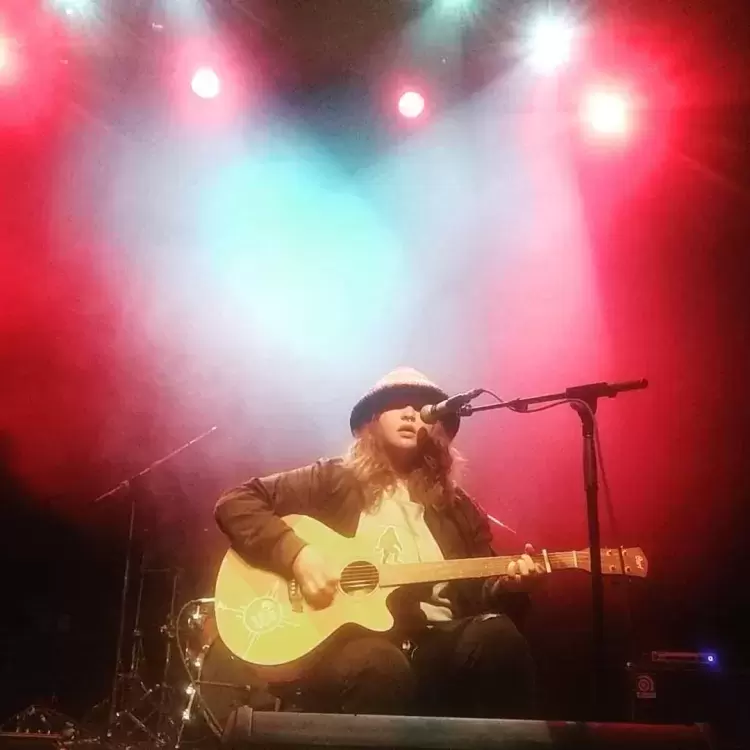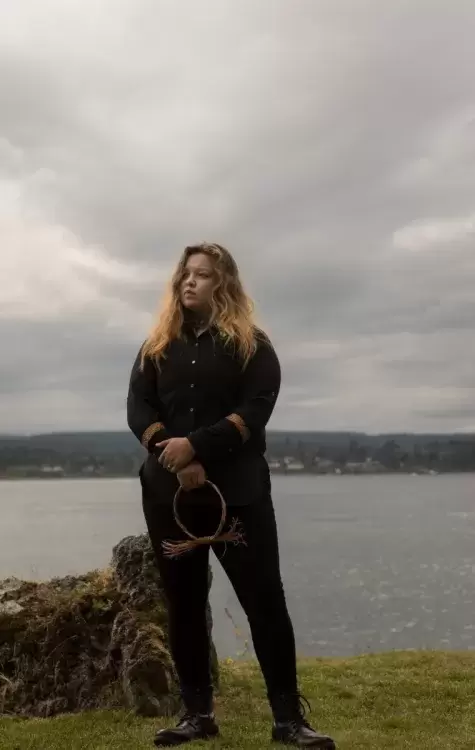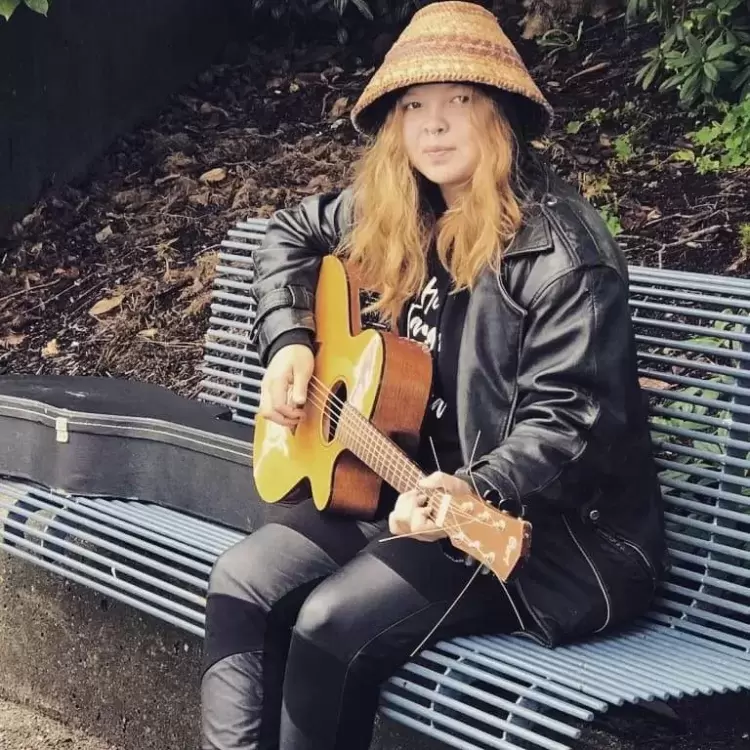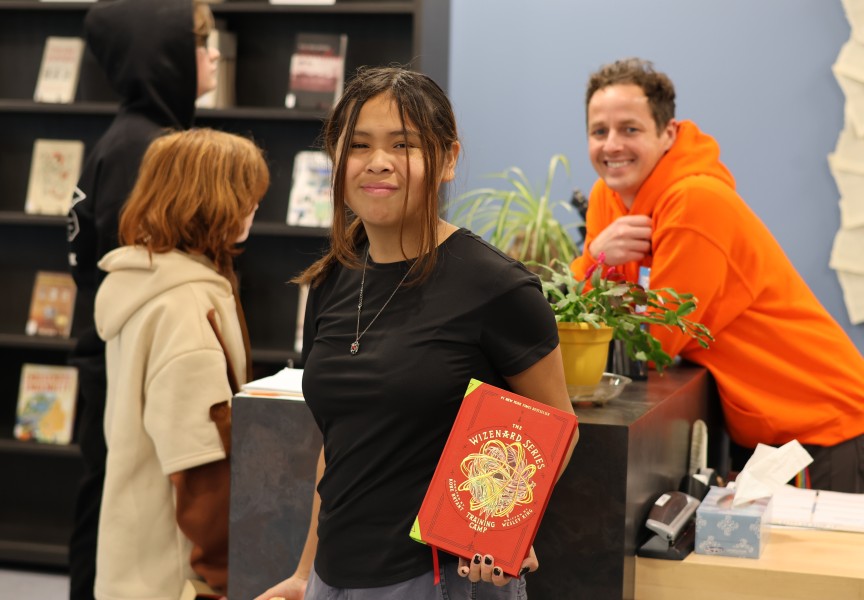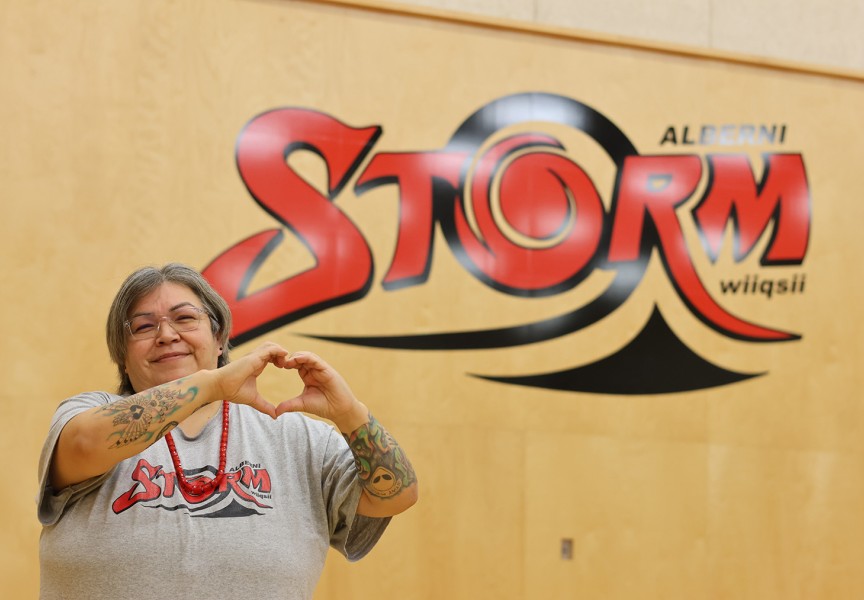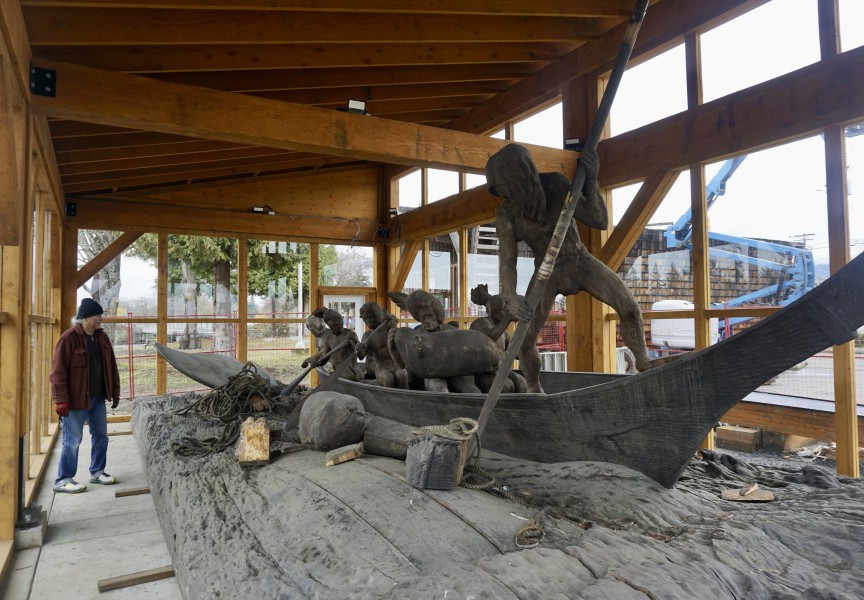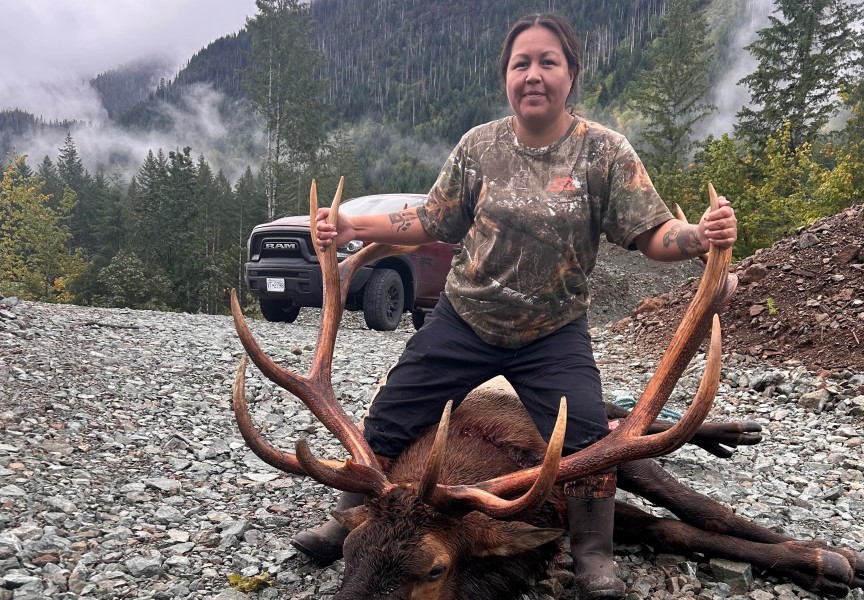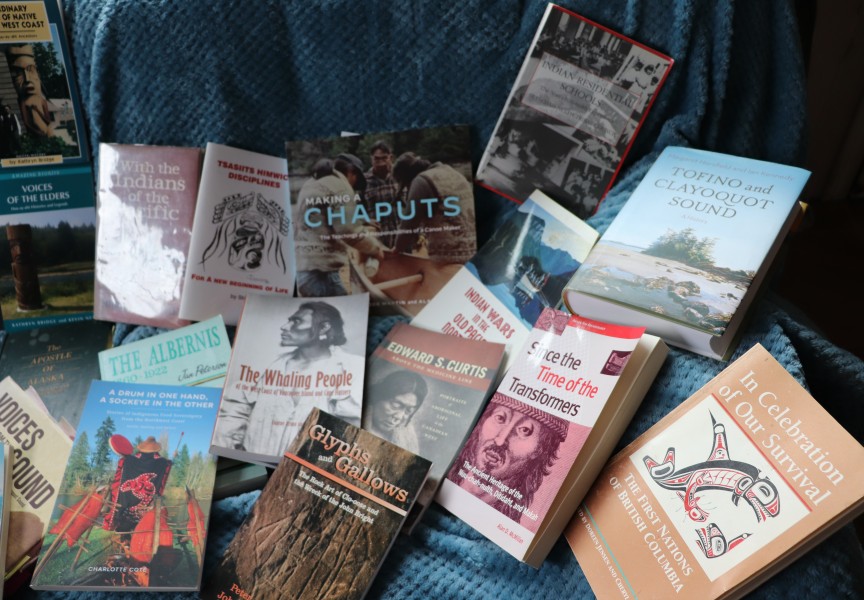Hasaatuk’s musical interest was stirred awake while attending Haahuupayak Elementary School in Port Alberni.
Through Nuu-chah-nulth immersion classes, she learned how to sing her ancestral songs and became inspired to write music of her own.
“It gave me a voice,” she said.
After seeking guitar lessons from her father, who is from Ahousaht First Nation, Hasaatuk wrote her first song when she was only eight years old. “ƛaqaʔas,” meaning “standing around outside,” was about the commercialization of Christmas, she said.
“I was always passionate about [social] issues,” Hasaatuk said. “I never thought I was the best at public speaking, but I felt confident with a guitar. Nothing could scare me if I had a guitar.”
While her music takes on a contemporary acoustic twist, Hasaatuk’s style is grounded in her traditional roots.
“To be immersed in our language and our culture at such a young age really pushed me to try and incorporate our language as much as possible into my music.”
She uses her traditional name, which her grandmother gave her during a coming-of-age ceremony, as her stage name.
“It means loud, vibrant voice,” she said. “It's really important to use our traditional names as much as possible and I feel it's fitting for me as an artist.”
In those early years, Hasaatuk got her start performing at community gatherings in Port Alberni and has since gone on to perform across the U.S., in New Zealand and Spain.
On August 12, she will be performing as part of INDIGIFEST 2021, a free, online celebration of Indigenous music hosted by the First Peoples’ Cultural Council (FPCC).
Beginning at 7 p.m., the show will include four other Indigenous artists.
Representing musical genres from classic country to hip hop, and almost everything in between, the event is an “opportunity to share and celebrate diverse Indigenous music from across the province,” said FPCC, in a release.
Each set will have cultural teachings and storytelling interspersed throughout, according to FPCC.
“By streaming this year’s festival for free online, First People’s Cultural Council is making Indigenous culture even more accessible [by] showcasing Indigenous talent to a worldwide audience,” said Sae-Hoon Stan Chung, chair of BC Arts Council.
Hasaatuk recorded her performance while staying on Matsquiaht, the site of the former Christie Residential School.
She said FPCC went “above and beyond” to help every artist feel supported by providing all of the necessary filming equipment to keep, along with tips and advice on how to use it.
“[FPCC] made sure that we felt confident in what we're putting out and that we have the skills to use more in the future,” she said. “To help elevate us as musicians and get our music out there.”
The transition to performing online has been a “surreal” experience for Hasaatuk. The 21-year-old said it has taken some time to get used to looking at a screen and seeing a bunch of people silently clapping after finishing a performance.
“There’s always the technical glitch,” she said. “But I’ve been really grateful to have these opportunities to perform throughout [COVID-19] and I’m really grateful that a lot of these festivals have moved online to support artists.”
Whether performing in-person or online, Hasaatuk said that ultimately, music is about connection.
“It's a really powerful feeling to be able to perform for many people,” she said. “And to see how each individual person connects with it in a different way.”

